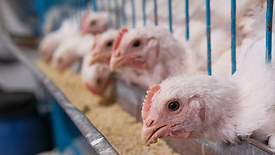Meat/Poultry
Sponsored Content
eBook | Food Safety Solutions for Meat and Poultry Producers
March 13, 2025
Never miss the latest news and trends driving the food safety industry
eNewsletter | Website | eMagazine
JOIN TODAY!Copyright ©2025. All Rights Reserved BNP Media.
Design, CMS, Hosting & Web Development :: ePublishing











